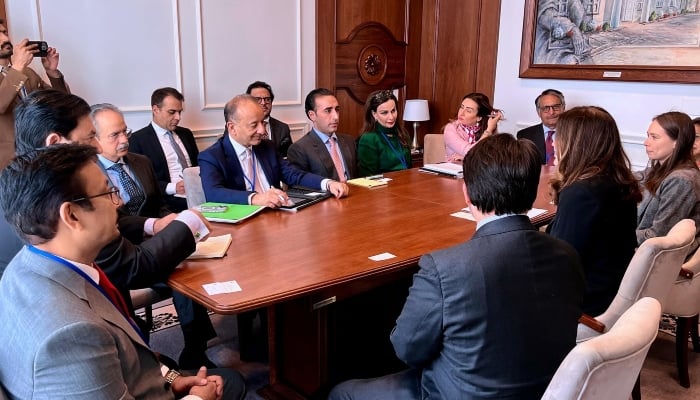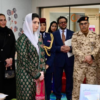
South Asia Cannot Afford Perpetual Conflict’, Pakistan Delegation Tells US
Diplomatic Dialogue Held in Washington
In a significant South Asia Cannot Afford Perpetual Conflict’, Pakistan Delegation Tells US, a high-level Pakistani delegation conveyed a strong message to U.S. officials during meetings held in Washington this week: South Asia cannot afford the consequences of perpetual conflict. Stressing the importance of regional stability and economic development, the delegation urged the United States to play a more constructive role in diffusing tensions, particularly between Pakistan and India.
The meetings were part of an ongoing bilateral dialogue on strategic and regional affairs, with senior diplomats, defense officials, and policy experts in attendance from both countries. The Pakistani delegation, led by senior representatives from the Ministry of Foreign Affairs and the Prime Minister’s Office, presented a clear and candid overview of the current security challenges in South Asia.
Focus on Kashmir and Regional Peace
A major focus of the discussions was the longstanding Kashmir dispute, which remains a central issue in Pakistan-India relations. The Pakistani officials reiterated that lasting peace in South Asia is impossible without a just resolution of the Kashmir conflict in accordance with United Nations resolutions and the aspirations of the Kashmiri people.
The delegation argued that India’s unilateral actions in the region, especially the revocation of Article 370 of its constitution in 2019, have escalated tensions and undermined regional stability. “A peaceful and prosperous South Asia hinges on justice, dialogue, and the rule of law,” one senior official stated during the meetings.
The delegation emphasized that the people of South Asia deserve opportunities for economic growth, education, and technological advancement—not the burden of constant military preparedness and political hostility.
US Urged to Facilitate Constructive Engagement
During the discussions, Pakistani representatives called on Washington to use its influence to encourage dialogue between Islamabad and New Delhi. They emphasized that U.S. neutrality and balanced engagement are critical to breaking the impasse and promoting peaceful coexistence in the region.
Pakistan’s delegation acknowledged America’s strategic partnership with India but urged U.S. policymakers not to overlook human rights concerns and regional consequences of its growing defense cooperation with New Delhi. They reiterated Pakistan’s willingness to engage in meaningful dialogue and confidence-building measures—provided there is reciprocity and political will from the Indian side.
U.S. officials reportedly responded by expressing continued interest in maintaining regional stability and reducing the risks of military escalation. Both sides agreed on the importance of open channels of communication and regional diplomacy.
Highlighting Economic Costs of Conflict
The Pakistani delegation made a compelling economic argument against ongoing hostility in South Asia. They presented data suggesting that the conflict has cost the region billions in lost trade, disrupted connectivity projects, and undermined collective economic potential.
Officials highlighted that countries like Bangladesh and Sri Lanka are already pursuing regional integration strategies that Pakistan and India could also benefit from—if relations were normalized. The delegation pointed out that trade between the two largest economies in South Asia remains far below its potential due to political tensions.
They also warned that perpetual military competition diverts critical resources away from health care, education, and poverty alleviation, affecting millions across the region.
Afghanistan and Regional Security Discussed
Alongside India-Pakistan relations, the situation in Afghanistan was also on the agenda. Pakistani officials stressed the need for a coordinated regional approach to ensure peace and stability in Afghanistan, which they said directly impacts South Asian security.
They called on the U.S. to engage more actively with regional players, including China, Iran, and Central Asian republics, to develop a roadmap for Afghanistan’s economic recovery and political stability. They also highlighted Pakistan’s ongoing efforts to support Afghan refugees and counterterrorism operations along its western border.
Civil Society and Think Tank Engagements
Beyond official meetings, the Pakistani delegation also held sessions with U.S. think tanks, media, and civil society organizations. These interactions aimed to clarify Pakistan’s position on regional peace and dispel misconceptions about its foreign policy goals.
Speakers emphasized that Pakistan’s future is tied to regional connectivity, mutual respect, and multilateral cooperation—not zero-sum rivalries. The delegation advocated for continued educational, cultural, and technological exchanges to foster people-to-people ties across South Asia and beyond.







